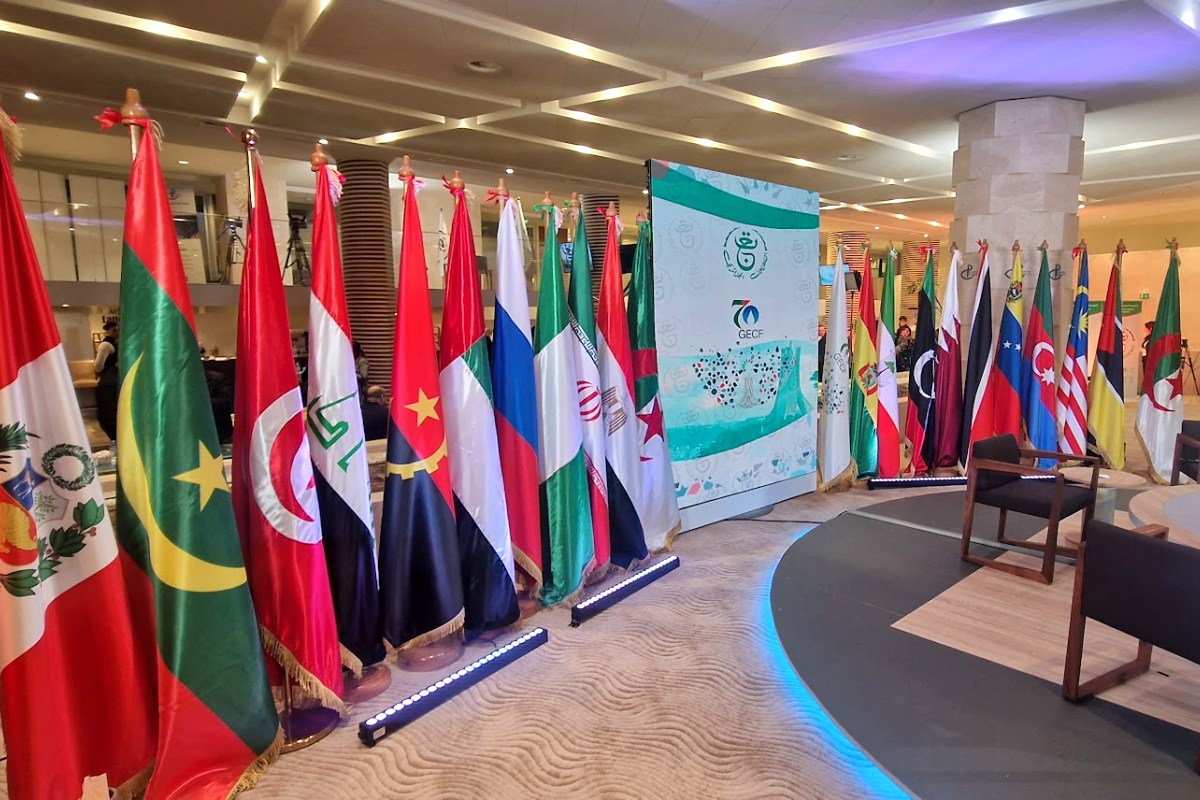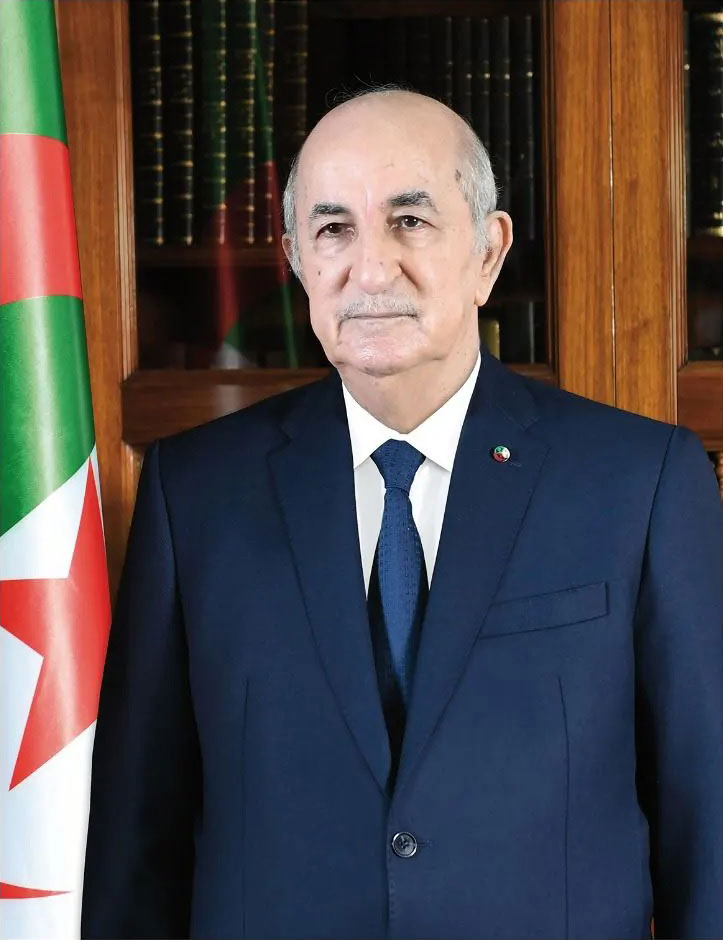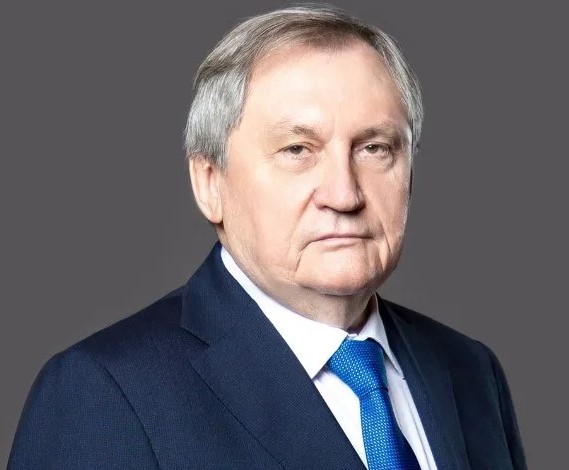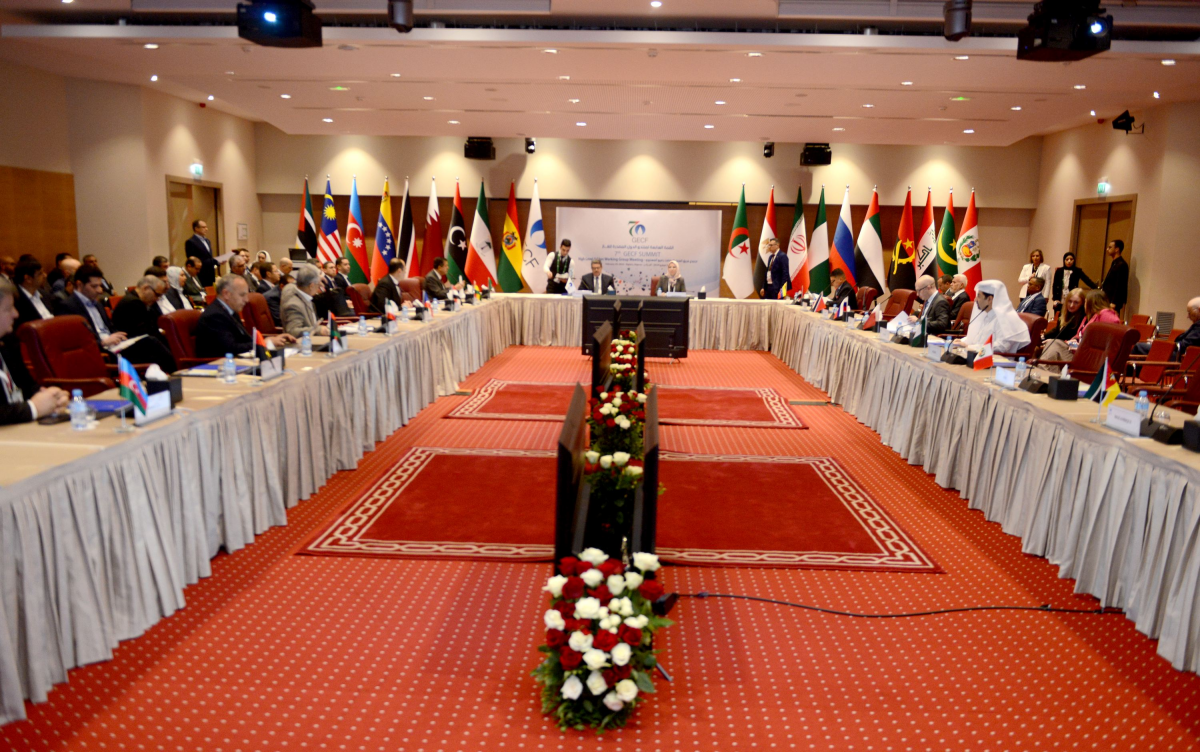On February 29, 2024, the high-level working group of the Gas Exporting Countries Forum (GECF) commenced its consensus meeting in Algiers
/ Reported by Robert Čoban
Diplomacy&Commerce participation at GECF was possible thanks to Turkish Airlines /

Over three days, leaders from 14 nations, including Russia, Iran, Qatar, and Venezuela, convened to address challenges in the oil and gas industry amidst increasing competition from renewable energy sources.
Algeria, positioning itself as a critical natural gas supplier for European countries aiming to reduce dependence on Russia, hosted envoys from energy-rich nations for a key summit in Algiers. The summit provides an opportunity for participants to coordinate investments and enhance production capacity while showcasing Algeria’s role as a reliable energy supplier. President Abdelmajid Tebboune emphasized the growing demand for natural gas as a clean energy source for socio-economic development.
Despite Algeria’s ambition to secure long-term contracts and strengthen its reputation as a credible producer, challenges persist. Infrastructure constraints and competition from other gas-producing nations like Qatar pose obstacles to meeting European demand. Additionally, Algeria faces domestic energy needs exacerbated by a growing population.
While Algeria has initiated investments in renewable energy, its economy remains heavily reliant on fossil fuels, with oil and gas revenue contributing significantly to its budget. Balancing domestic energy requirements with export commitments remains a critical concern for the nation’s energy strategy.

Welcome Message by His Excellency Mr Abdelmadjid Tebboune
President of the People’s Democratic Republic of Algeria
“I am pleased to extend warm fraternal greetings to Your Majesties, Highnesses, and Excellencies. I am honored to welcome you to Algeria for the 7th Summit of the Gas Exporting Countries Forum (GECF) on March 2nd, 2024. On this occasion, I also wish to express my sincere appreciation to His Highness Sheikh Tamim bin Hamad Al Thani, Emir of the State of Qatar, for his successful leadership at the previous Summit and his skillful management of its proceedings. My gratitude extends to the GECF Secretary General and all those who have dedicated their efforts to preparing this important summit.
The Algiers session takes place amidst a growing focus on natural gas as a crucial energy source for economic and social development and its potential as a clean and environmentally friendly energy source. This makes us, as we meet in the capital Algiers, look forward to deepening our discussions and collaborations to affirm natural gas’ role as an essential resource for energy transitions, address technology challenges, encourage investment in exploration and development of natural gas fields, and foster mutually beneficial partnerships between producing and consuming countries alike.

President of the People’s Democratic Republic of Algeria
Algeria is keen to surround this event with all the conditions necessary for success. On this occasion, while firmly adhering to the values of cooperation and solidarity within the framework of our forum, it considers that the preservation of this precious resource and the utilization of its advantages is a shared responsibility that requires a mutual understanding of balancing interests and sharing benefits.
I welcome Your Majesties, Highnesses, and Excellencies as esteemed guests.
Peace be upon you, and the mercy of Allah and His blessings.
Russian Energy Minister Nikolai Shulginov
Russia Seeks a Reasonable Energy Balance!
by Dr. Hana Saada for “El Moudjahid”
The Russian Minister of Energy sheds light on the context and challenges surrounding the 7th Summit of the Gas Exporting Countries Forum (GECF), which commences today in Algiers

In this exclusive interview with El Moudjahid, he emphasizes the constraints facing the gas market and underscores the importance, openness, and non-discrimination of global natural gas markets within the “Algiers Declaration.”
Furthermore, he stresses that Russia has never used energy resources as a means of pressure against other countries. Nikolai Shulginov, a seasoned figure in the energy world, was born on May 18, 1951, in Sablinskoye, in the Aleksandrovsky district of Stavropol Territory.
Nikolai Shulginov, Minister of Energy of the Russian Federation, boasts extensive academic credentials in the energy field. In 1973, he graduated from the Sergo Ordzhonikidze Polytechnic Institute in Novocherkassk with a specialization in power supply for industrial enterprises and cities. From October 1975 to December 1976, he worked as an engineer at the Pyatigorsk branch of the All-Union Design and Research Institute Selenergoproekt. Since July 1998, he has held various positions, including Chief Engineer of the Central Dispatch Service at Stavropolenergo, a subsidiary of RAO UES of Russia, Pyatigorsk.
From July 1998 to September 2002, he served as Deputy Director, then Director of the Territorial Computing Center and Contract for the Federal Wholesale Electricity Market at the Unified Dispatch Administration for the North Caucasus, a branch of RAO UES of Russia, Pyatigorsk. From July 2002 to September 2015, he was Director of Technical Audit at SO UES (former SO-CDU UES).
In March 2004, he was appointed Vice Chairman of the Board of Directors. In 2007, he obtained his Doctorate in Technology from the North Caucasus State Technical University. In February 2009, he became First Vice President of the Board of Directors in Moscow, and from September 2015 to 2020, he served as Chairman of the Board of Directors and CEO of RusHydro in Moscow. On November 10, 2020, he was appointed Minister of Energy of the Russian Federation.
You are participating in the 7th Summit of Heads of State and Government of the GECF. What are Russia’s expectations for this important event, which takes place against a backdrop of excessive volatility in global energy markets?
Much has changed since the two years when, as head of the Russian delegation, I participated in the 6th GECF Summit in Doha. At that time, we were rebuilding the energy sector after the coronavirus pandemic, combating underinvestment in the oil and gas sector, and addressing other challenges with economic roots.
Today, to these challenges are added artificial political obstacles to the natural development and progress of the energy sector. Unilateral and illegitimate restrictions imposed by several countries have destabilized global energy markets. The “capping” of oil prices, the joint gas purchasing mechanism, and other aggressive actions undermine the principles of free and non-discriminatory markets. The result is negative consequences for the development of the economy and the gas industry of a given country.
In my opinion, this is a short-sighted view. Gas is affordable, reliable, versatile, and environmentally friendly. It can be used to achieve climate neutrality, which is currently in vogue, without imposing financial burdens on the global economy and, ultimately, on consumers.
Long-awaited by many producing countries, feared by consumers, but postponed for technical and leadership reasons, it seems, will the Gas OPEC finally see the light of day in Algiers? What is Russia’s position on the idea of forming this “organization”?
The GECF does not impose gas production quotas. Our alliance aims to ensure the sovereign rights of member countries over their own natural gas reserves and the ability to independently plan and ensure sustainable and efficient gas development and use for the benefit of their populations. It is also an excellent platform for exchanging experiences, views, and information on key aspects of gas industry development. The Russian Federation remains committed to unity, cohesion, and constructive cooperation among GECF member countries.
“The Algiers Declaration,” which will seal the summit’s work, is expected to send a strong message to the energy world. What will this message be, in your opinion?
I rely on common sense. I believe the declaration will focus on the importance, openness, and non-discrimination of global natural gas markets. We must not forget the need to counter risks and challenges in the gas sector.

